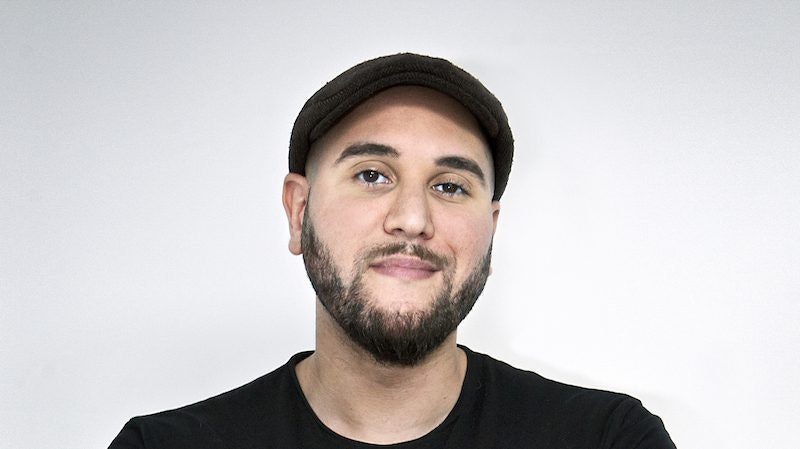Angel investors and VCs aren’t the only folk that back startups. Family offices have also got skin in the game — and they’re increasingly splashing the cash on tech. Across 2021-22, they participated in 541 investments into European startups, according to Dealroom — nearly twice as many as the previous two-year period.
But despite pouring money into startups like never before, they’re often a little more bashful than VCs or angels. So, to find out how they work, Sifted spoke to a number of family office managers — and some founders who have convinced them to part with their cash.
What is a family office?
Put simply, a family office is the investment vehicle of a very wealthy person or group of people. There are single-family offices, which, predictably, invest the cash of one wealthy individual or family, and multi-family offices, which pool the capital of many. They’re typically built on generational wealth, and alongside investing directly in startups can also put money into VC funds as limited partners (LPs). While single-family offices can be run by a fund manager or two, multi-family offices will likely have much larger teams.
“If you’ve met one family office, you’ve met one family office — they’re all different,” says Martin Cass, partner at Dublin-based multi-family office Elkstone Ventures.

Lots of family offices invest in more traditional industries like property. But several of Europe’s unicorn tech founders have launched their own, which tend to focus exclusively on tech. Revolut’s Nik Storonsky, Checkout.com’s Guillaume Pousaz and Mollie and Messagebird’s Adriaan Mol — along with dozens of others — all have them.
While it’s not the case all the time, the family office of an entrepreneur usually invests in startups at the earlier stages, says Reinhard Meier, who set up his own family office, M4Capital, after exiting German healthtech TeleClinic. “Industrial wealth family offices would usually invest in startups at a later stage.”
Where to find family office funding?
The stage and sector that a family office invests in varies wildly — so it can be tricky as a founder to know who to reach out to if you're on the hunt for funding.
That’s why it’s important to spend time working out which family offices invest in your specific sector before reaching out, says Meier. He’s seen some founders buy the email addresses of hundreds of family offices online and send out blanket emails, but says it’s like finding a needle in a haystack, as they invest in such diverse sectors, inside and outside of tech.
There are a number of online resources founders can access to find out which family offices invest in what. In Germany there’s a data platform called Startup Detector, and other deal counting platforms like PitchBook and Dealroom also have information on where family offices have spent their money.
But they don’t always want to be found, and family offices will sometimes invest under an alias to remain private. "Family offices don't just let anyone pitch them, they don't have the resources for that — dealflow needs to come 'quality filtered' from within their established trusted network,” says Samir El-Alami, founder of healthtech doctorly, which has raised money from several family offices.
Asking your current investors for introductions can be a good place to start, says Melissa Lester, partner at Dig Ventures — which began as a family office for SaaS giant Mulesoft’s founder Ross Mason, when he exited the US company in 2018 and moved back to the UK. Dig is now raising its first VC fund from LPs. “Introductions to family offices are very network-driven — like the rest of venture — and a lot of VCs can provide access to [them],” Lester says.

VCs often build up their own large networks of family offices as many count them among their LPs or have invested alongside them in other startups. “That’s how they get their dealflow. Family offices tell VCs what they really like, and VCs will send them things that they want back directly,” says El-Alami.
Angel investors also tend to have their own connections that founders can tap into, says Meier.
Going direct can also work, says Meier. “Every founder who’s had an exit might have a family office. If those founders are in your sector, it makes sense to reach out to them.” Most tech founder-led family offices are always “hungry to meet founders”, adds Lester.
What can a family office give a startup?
For startups looking for operational support, offices set up by exited founders with experience can be a useful resource.
“Founders turn to funds like Dig Ventures because they want specialist founder support,” says Lester. “They want to speak to funds that understand their area or sector.” Dig Ventures mainly backs startups in the SaaS space, as that’s where Mason made his money.
Meier’s family office has similarly only backed startups in the healthtech sector. “I’ve only invested in healthtechs because I know the sector, so I can help.” In this way tech-founder family offices can operate a lot like angel investors — but usually with deeper pockets.

That doesn’t mean all family offices like to be involved in the day-to-day operations of running a startup. “Family office money can be more passive than VC money, which might suit some founders that don’t want to give up a board seat or observer rights,” says Cass. Passive family office capital would usually come from more traditional offices, where the money managers don’t have day-to-day operational experience of running a startup.
They can also provide funding not tied to the typical VC investment cycle. “VC funds have a typical lifecycle where they’re investing over a five-year period and looking to exit over the following five years,” says Cass. “Family offices don’t operate on the same lifecycle. They may still have an agenda where they’re looking to exit over a time period, but typically it's more patient capital.”
Startups that operate in sectors that VCs usually steer clear of can also strike gold with family offices.
“When we started in sexual health 10 years ago, no VCs understood the segment, and couldn’t invest because of vice clauses [restrictions set by LPs on the type of startups the funds they back can invest in],” says Soumyadip Rakshit, founder of sextech MysteryVibe, which raised from a number of angels and multi-family office Elkstone.

“The biggest difference between a VC and a family office is that a VC is a money manager for someone else. Family offices use their own money and don’t have to answer to anyone,” he says. That also speeds up the pace of investment, says Lester.
And then there’s the network that they can open to the startups they back. “If you have a healthtech startup, and you raise from a family office which has made money from healthcare businesses in the past, you’re guaranteed access to the network,” says Rakshit.
Family offices also tend to have big networks of other wealthy individuals they can connect startups to. “If a respected family office invests in a startup, this is definitely a positive signal of trust for other family offices or high-net-worth individuals who are looking to deploy their capital,” says El-Alami.
What should startups consider before taking their cash?
It’s important for founders to think about how active they want a family office to be once they have invested, says Cass. While family office money can be passive capital, in other cases — like with Dig and M4 — they want to be more involved in business decisions.
“The value-add piece and how active a family office wants to be is really important,” Cass tells Sifted. If a startup already has VCs on its cap table that provide operational support, the founders might be more interested in passive capital from family offices, he adds.

Having one eye on what future investments a startup might need is also key. Founders should make sure they know whether a family office they’re approaching for funding tends to offer follow-on investment, too, says Cass. “A VC fund will typically have reserves set up to follow-on. But with a family office whether or not they do follow-ons is unknown, and it's something a founder needs to understand in terms of choosing to work with that family.”
And startups shouldn’t assume a family office is a less professional investing organisation than a VC, says Lester. “I would advise a founder to speak to a family office as they would a really savvy early-stage VC fund.”
Like VCs, many family offices have defined criteria around what they invest in, operate a full-fledged due diligence process and have intended cheque sizes, she tells Sifted. “I think there’s often the assumption that because it’s a family office all of that becomes a bit looser. But actually we’re just as tight around our due diligence process as a VC.”


